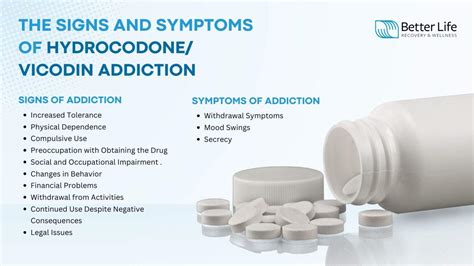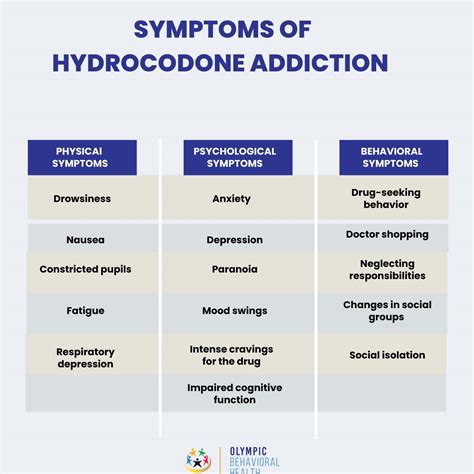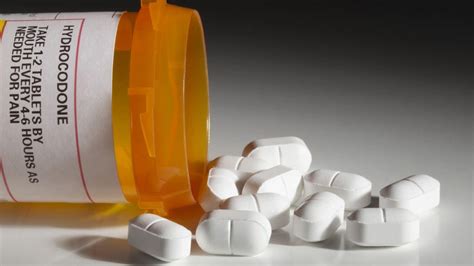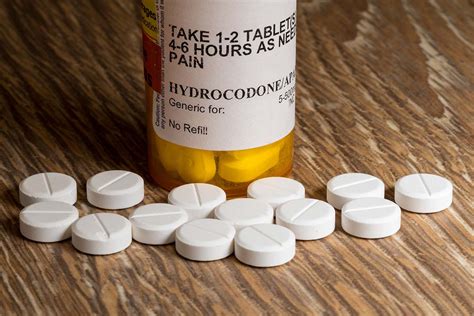Intro
Hydrocodone is a powerful opioid medication that is commonly used to treat moderate to severe pain and cough. It is often prescribed in combination with other medications, such as acetaminophen or ibuprofen, to enhance its pain-relieving effects. However, like all opioid medications, hydrocodone can have a range of effects on the body, both positive and negative. In this article, we will explore 5 hydrocodone effects that you should be aware of, whether you are taking the medication yourself or know someone who is.
Hydrocodone is a highly effective pain reliever, but it can also be habit-forming and lead to dependence. The medication works by binding to opioid receptors in the brain and spinal cord, which can produce feelings of euphoria and relaxation. While this can be beneficial for people who are experiencing chronic pain, it can also lead to a range of negative effects, including addiction, respiratory depression, and cognitive impairment. It is essential to take hydrocodone exactly as directed by your doctor and to be aware of the potential risks and side effects associated with the medication.
The effects of hydrocodone can vary depending on the individual and the dosage. Some people may experience relief from pain and discomfort, while others may experience negative side effects, such as drowsiness, nausea, and constipation. Hydrocodone can also interact with other medications, including antidepressants, antihistamines, and muscle relaxants, which can increase the risk of adverse effects. If you are taking hydrocodone, it is crucial to follow your doctor's instructions carefully and to report any side effects or concerns promptly.
Hydrocodone Effects on the Body

Common Hydrocodone Side Effects
Some common hydrocodone side effects include: * Drowsiness and dizziness * Nausea and vomiting * Constipation * Headache * Dizziness and lightheadedness * Dry mouth * Sweating * Itching and rashHydrocodone Effects on Mental Health

Hydrocodone and Addiction
Hydrocodone is a highly addictive medication, and long-term use can lead to physical dependence. Signs of hydrocodone addiction include: * Taking more of the medication than prescribed * Using the medication for longer than prescribed * Experiencing withdrawal symptoms when stopping the medication * Neglecting responsibilities and relationships due to hydrocodone use * Continuing to use hydrocodone despite negative consequencesHydrocodone Effects on Respiratory System

Respiratory Depression and Hydrocodone
Respiratory depression is a serious side effect of hydrocodone that can be life-threatening. Signs of respiratory depression include: * Slow or shallow breathing * Difficulty breathing * Bluish discoloration of the skin and lips * Confusion and loss of consciousnessHydrocodone Effects on Cognitive Function

Cognitive Impairment and Hydrocodone
Cognitive impairment is a serious side effect of hydrocodone that can affect daily life and relationships. Signs of cognitive impairment include: * Impaired judgment and decision-making * Memory loss and confusion * Difficulty concentrating and paying attention * Mood changes, such as anxiety and depressionHydrocodone Effects on Digestive System

Digestive Side Effects of Hydrocodone
Some common digestive side effects of hydrocodone include: * Constipation * Nausea and vomiting * Diarrhea * Abdominal pain and cramping * Loss of appetiteWhat are the most common side effects of hydrocodone?
+The most common side effects of hydrocodone include drowsiness, nausea, constipation, headache, and dizziness.
Can hydrocodone be addictive?
+Yes, hydrocodone is a highly addictive medication, and long-term use can lead to physical dependence and addiction.
What are the signs of hydrocodone overdose?
+Signs of hydrocodone overdose include slow or shallow breathing, difficulty breathing, bluish discoloration of the skin and lips, confusion, and loss of consciousness.
In conclusion, hydrocodone is a powerful opioid medication that can have a range of effects on the body, both positive and negative. While the medication can provide relief from pain and discomfort, it can also lead to negative side effects, such as drowsiness, nausea, and constipation. It is essential to follow your doctor's instructions carefully and to report any concerns or side effects promptly. If you or someone you know is taking hydrocodone, it is crucial to be aware of the potential risks and side effects associated with the medication and to seek medical attention immediately if you experience any signs of overdose or addiction. We invite you to share your thoughts and experiences with hydrocodone in the comments section below and to share this article with others who may be interested in learning more about the effects of hydrocodone.
